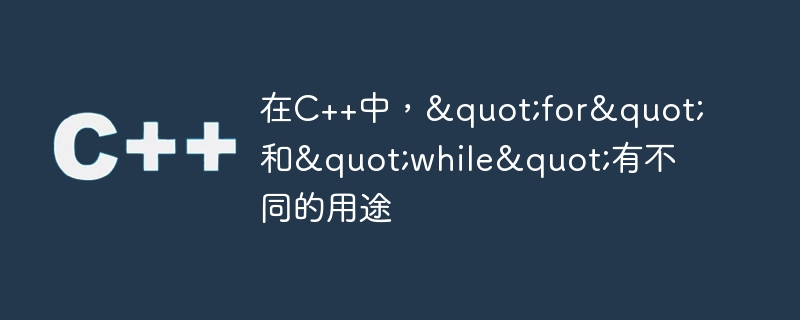

Loops in programming are used to calculate a piece of code multiple times. Here, we will see the difference between two types of loops in the program, For loop and While loop.
The For loop is a repetitive control loop that allows the user to loop through a given block of code a specific number of times.
1 2 3 |
|
While loop is an entry control loop that allows the user to repeatedly execute a given statement until a given condition is true.
1 2 3 |
|
For loop is a controlled loop, while while loop is a conditional loop
Control loop.
The conditional statement of the for loop allows the user to add an update statement in it, while in the while condition there is only control The expression can be written as.
In a for loop, the test condition is usually an integer comparison, whereas in a while loop, the test condition can be any other expression that evaluates to a Boolean value.
Case in which two loops in the code can provide different solutions
One situation is when the loop body contains a In while loop, continue statement before update statement, but in for loop The update statement already exists in initialization.
Procedural example to illustrate how our solution works: (for loop)
1 2 3 4 5 6 7 8 9 10 11 12 13 |
|
1 2 3 4 5 |
|
Program to demonstrate how our solution works: (while loop)
1 2 3 4 5 6 7 8 9 10 11 12 13 14 15 |
|
1 2 3 |
|
The above is the detailed content of In C++, 'for' and 'while' have different uses. For more information, please follow other related articles on the PHP Chinese website!
 The difference between while loop and do while loop
The difference between while loop and do while loop
 How to use python for loop
How to use python for loop
 What are the e-commerce platforms?
What are the e-commerce platforms?
 Why does vue.js report an error?
Why does vue.js report an error?
 How to check website dead links
How to check website dead links
 Can windows.old be deleted?
Can windows.old be deleted?
 What does Metaverse Concept Stock mean?
What does Metaverse Concept Stock mean?
 What should I do if eDonkey Search cannot connect to the server?
What should I do if eDonkey Search cannot connect to the server?
 jquery validate
jquery validate




